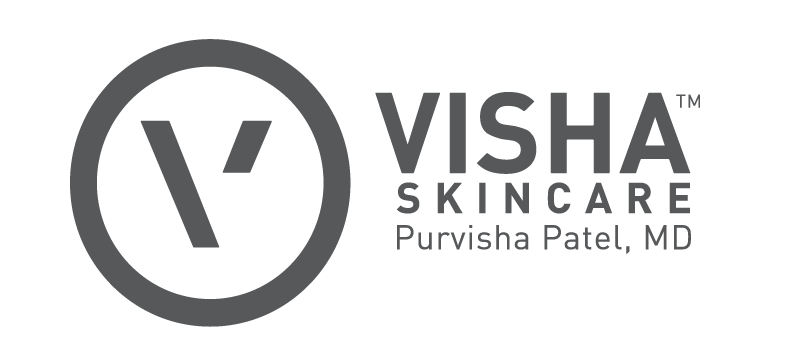
Byrdie shared "What Dermatologist Thinks About Zinc for Acne" featuring Dr. Purvisha Patel, Visha Skincare, Advanced Dermatology, and Visha Skincare Advanced Purifying Cleanser.
Zinc is a power player in the mineral world. It boosts your immune system, aids in brain development and memory retention, and prevents cellular damage in the retina, among so many other benefits. And interestingly, our bodies don't naturally produce it, which is why we need to get it through food or supplements.
Another impressive use for zinc? Acne treatment. Zinc works in tandem with vitamin A and helps convert it into an active form of retinol (a proven remedy for clearing acne lesions), and it also can inhibit bacteria growth in sebaceous glands. And although more research is needed, studies have found the mineral to significantly decrease papules and cysts when taken orally and when applied topically. So to glean a bit more information on how to safely and effectively use zinc for acne, we spoke with dermatologist Purvisha Patel, MD.
Below, find out what she has to say.
MEET THE EXPERT
Purvisha Patel, MD, is a board-certified dermatologist and MOHS and cosmetic surgeon. She is also the owner of Advanced Dermatology and Skin Cancer Associates and the founder of Visha Skincare.
Just How Effective Is Zinc for Acne?
"Zinc is a high-performance ingredient that helps to address redness, irritation, and inflammation caused by conditions like acne, rosacea, and seborrheic dermatitis," says Patel. "The ingredient, in combination with mild alpha and beta acids, helps decrease inflammation, exfoliate the skin that clogs the pores, and helps kill the bacteria/fungus that causes acne."
The actual absence of the mineral may be the cause of breakouts. Patel explains, "Zinc is necessary for collagen synthesis, and when deficient, the keratin in the skin can be more 'sticky,' resulting in more clogged pores. A lot of people with acne may find supplementation helpful to decrease acne breakouts." Proceed with caution, though: Ingesting too much zinc can cause side effects like nausea, diarrhea, and ironically, a weakened immune response. Always check with your doctor before taking a zinc supplement for acne and before altering your routine.
How Does Zinc Compare to Antibiotics?
Antibiotics are commonly prescribed for treating bacteria-causing acne (though they're often met with mixed criticism), and while zinc certainly isn't a replacement for antibiotics in the big picture, for acne, it's a much better treatment option. Says Patel, "Antibiotics are generally used in moderate to severe acne, and their efficacy seems to be due to anti-inflammatory effects as well as antibacterial properties. They are not as utilized in the treatment of acne in my clinic, as they should not be used for long periods, and the underlying causes of acne can be treated in other ways. Four things cause acne: follicular occlusion, oil production, growth of an organism in clogged oily pores, and inflammation. When we get rid of two of these four factors, we cannot make acne anymore. Zinc addresses all four factors above; antibiotics only help with two. Visha Skincare Advanced Purifying Cleanser addresses all four of these factors."
Can You Use Zinc With Other Products?
Patel says that side effects associated with zinc in topical form are nominal and that it's generally "well-tolerated." The main issue with using zinc topically is that, while not targeted for treating acne, if zinc is applied to the skin in zinc oxide form (commonly used as a physical sunscreen), then it can hinder the absorption of other products. "It can be quite thick and occlusive, preventing other skincare products from working," says Patel.
How Should You Use It for the Best Results?
You'll find faster results when applying zinc topically versus orally. "With topical products, when used twice a day, there should be a decrease in acne within two weeks. When taken orally, there should be a difference in four weeks," says Patel.
Read the full article

